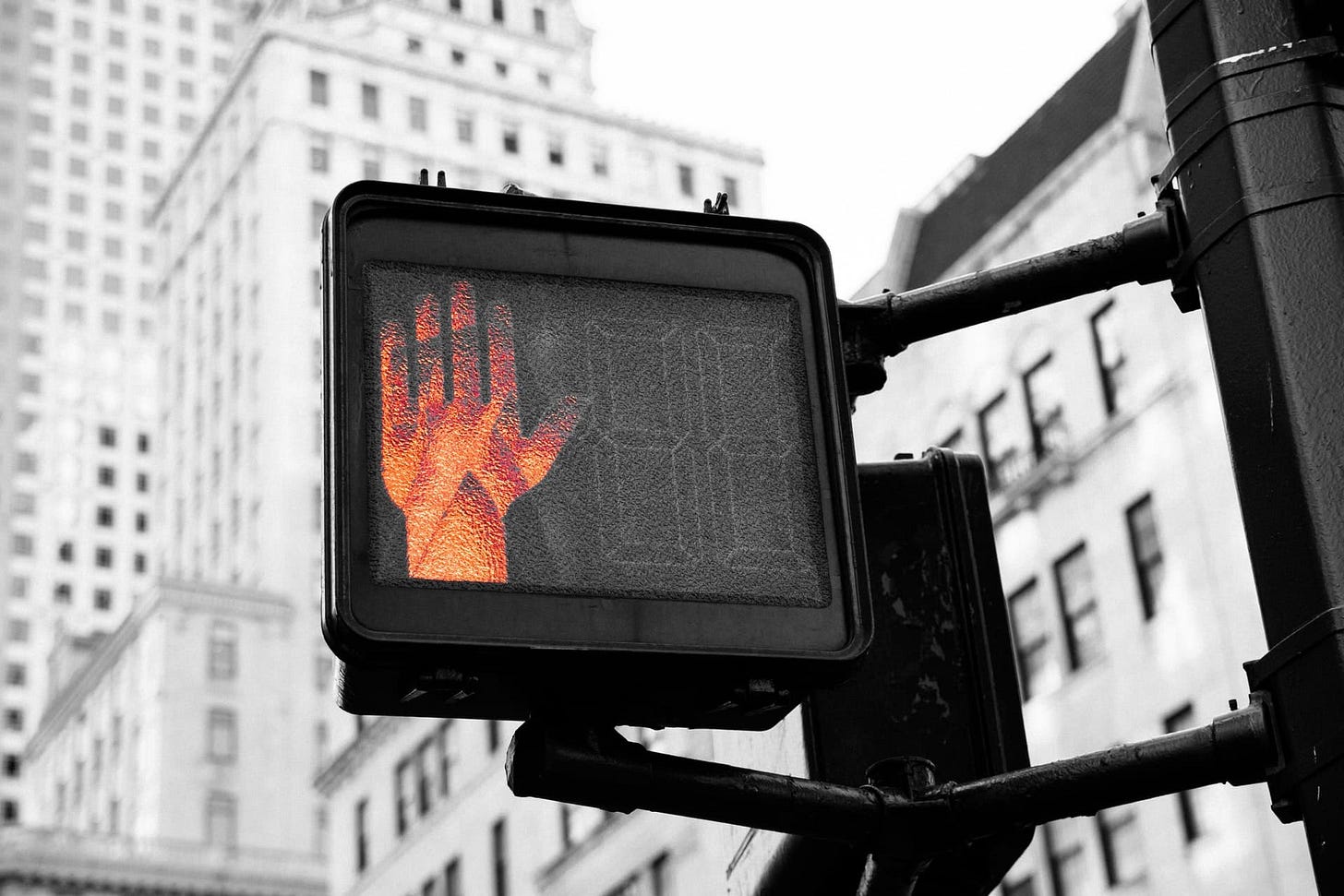How to Get Better At Saying No
Two ways to turn down requests without being rude.
Every request you accept comes with a cost.
If you want to be more effective, or even if you just want some breathing room in your life, you need to say no more often.
For some of us, this is easier said than done. The inability to say no is one of the things that contributes the most to burnout and overwhelm. It can even lead to feelings of guilt or shame—you feel guilty for “letting someone down” even though you’re struggling to keep up on your own.
What should you say no to? That’s up to you! But here’s a start: anything that you don’t want to do.
Before you come up with objections—“but there are so many things I simply have to do”—I encourage you to try living by it for a while. Remember, every request has a cost. By saying yes to one thing, you’re saying no to others. Unless you want to live your life completely at the direction of someone else, you need to improve your ability to say no.
Here are two strategies that have been helpful to me.
1. Treat Future Commitments Like They're Tomorrow
When you’re asked to do something in the future that you’re not sure you’ll want to do, you tend to say yes because it’s far off. You figure, well, that’s a long time from now, and I don’t have anything else going on then, so I might as well say yes.
But then, “someday” eventually shows up on your calendar, along with that request you accepted long ago. Why did I agree to this? you wonder.
The trick is to imagine the activity you’re asked about would be taking place tomorrow. If so, would you say yes or politely decline? If you’d decline for tomorrow, the odds are good that you won’t feel like doing it a few weeks or months into the future.
Therefore, the obvious suggestion: start declining more of those invitations. Don’t agree to something just because it’s far off.
2. Tell the Truth: You’re Already Committed
Whether it’s far in the future or a meeting this afternoon that you’d really prefer to skip, how can you say no without hurting someone’s feelings?
There’s no magic answer, but here’s a helpful way you can reframe the challenge. When I turn down a request, I often say something like: “I want to make sure I do a good job with my current commitments, and right now my plate is full.”
Sometimes I even go further and say, “I’m a little overcommitted right now, and I don’t think I would do a good job with this request.”
This way, you’re not rejecting the person or the request; you’re just noting that you’re unable to accept it. I like to think you’re even honoring that person by not committing to something you might not handle well.
(And by the way, this is true! There’s no deception involved in the answer. When I say I’m fully committed or overcommitted, I really do feel that way.)
If you want more control over your time, getting better at saying no is one of the most important skills you can develop. I’ll be cheering you on!
I would say, “Let me know if you need more help with this,” but I’m afraid I’m fully committed right now…
Addendum
I wrote this post after a negative experience with a company I did some work with. After completing our agreed work, the company asked me to do something else that I didn’t want to do. I told them no at first, but they said it was really, really important—so I backed down. Big mistake!
The extra work consumed ten hours, created unnecessary stress, and involved misaligned expectations with a third party. Looking back, maintaining my initial "no" likely wouldn't have damaged the relationship.
All that to say: the struggle is real. Whenever you have an experience like that, store it in your memory for the next time you encounter a similar scenario.




I always feel that I need to follow a "no" with a long list of reasons and justifications.
I need to remember that I can just say "No" and that should be enough.
Ahhh the horror of saying yes to what is really a no. Such a hard habit to break.
It reminds me of Portia Nelson’s poem:
I walk down the street.
There is a deep hole in the sidewalk.
I fall in.
I am lost... I am helpless.
It isn't my fault.
It takes forever to find a way out.
I walk down the same street.
There is a deep hole in the sidewalk.
I pretend I don't see it.
I fall in again.
I can't believe I am in the same place.
But, it isn't my fault.
It still takes me a long time to get out.
I walk down the same street.
There is a deep hole in the sidewalk.
I see it is there.
I still fall in. It's a habit.
My eyes are open.
I know where I am.
It is my fault. I get out immediately.
walk down the same street.
There is a deep hole in the sidewalk.
I walk around it.
I walk down another street.